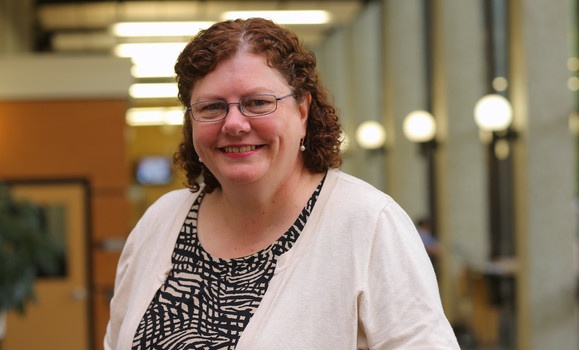News
» Go to news mainDal researchers find new clue to fighting RSV, the most common cause of kids' hospitalizations

Dalhousie Medical School researchers have made a breakthrough discovery around the immune system’s response to respiratory syncytial virus (RSV), a virus so common it infects virtually 100 per cent of the world’s population and sends more children to hospital than any other cause. The team’s work, published in the influential Journal of Allergy & Clinical Immunology, could lead the way to effective treatment and prevention strategies for this extremely pervasive, sometimes deadly, virus.
The Dalhousie researchers are the first in the world to show that RSV stimulates mast cells to mount a strong anti-virus response that could be harnessed to fight RSV. Mast cells are sentinel cells that raise the alarm when they sense an intruder, and are well known for their role in aggravating allergy symptoms and asthma.
“We found that exposing mast cells to RSV triggers the mast cells to produce 10 to 15 different kinds of immune cells that help the immune system fight RSV,” says lead investigator Dr. Jean Marshall, a mast cell expert and head of the Department of Microbiology & Immunology at Dalhousie Medical School.
“This came as a surprise, because mast cells are the ‘bad guys’ that lead to inflammation and tight, congested airways in asthma,” explains Dr. Marshall. “Since airway congestion in RSV is similar to what we see in asthma, we thought mast cells might also play a role in exacerbating the symptoms of RSV. But as it turns out, mast cells are the ‘good guys’ in RSV. So, boosting rather than blocking mast cells may help overcome one of the biggest challenges in fighting the infection.”
RSV can be serious for kids and others
“We see a lot of admissions at the IWK Health Centre from November through April,” says Dr. Raidan Al-Yazidi, a senior resident in the Department of Pediatrics at Dalhousie Medical School who was key member of the research team. “Many of the younger children end up in the intensive care unit and may require oxygen—they have to work very hard to breathe.”
Most children in wealthier nations survive RSV but, in the absence of vaccine or cure, the infection takes a deadly toll in the developing world.
“A study in The Lancet found that RSV caused more than 33 million acute lower respiratory infections in 2005, worldwide, and killed as many as 199,000 children under the age of five, mostly in developing countries,” Dr. Al-Yazidi says. She adds that RSV costs billions of dollars in hospitalizations each year in the United States alone. Elderly people and those with compromised immune systems are also at risk of serious illness or death.
Working toward a vaccine
Scientists around the world have been trying for more than 60 years to develop a vaccine that prevents RSV. Like the common cold and influenza, RSV can recur again and again over the course of a person’s life. But, unlike certain cold and flu viruses, which mutate so rapidly they are a moving target for vaccines, RSV is a stable virus that mutates much less, so its ability to evade immunity is even more mysterious.
“RSV suppresses the immune response, which not only makes it hard for a person to fight the illness, it makes it hard to stimulate protective immunity with a vaccine,” says study co-lead investigator Dr. Robert Anderson, a professor in the Department of Microbiology & Immunology who’s been pursuing an RSV vaccine for more than 20 years. “We may be able to use mast cells to boost the immune response to the disease, not only as a treatment but as part of a vaccine strategy.”
The researchers used human cord blood as a source of mast cells, which they combined with RSV in Petri dishes. They used flow cytometry to sort and identify the immune cells generated by the mast cells’ response to the virus. Next they hope to run mast cell experiments in new mouse models of RSV, which have been developed in the four years since they began their initial investigations.
“RSV is a very tricky virus. We can’t take a hit-and-miss approach to vaccine development,” says Dr. Anderson. “We need to learn much more about the basic biology and immunology of RSV and how it causes infection, so we can design a safe and effective vaccine.”
Recent News
- Dalhousie’s Mini Medical School brings medicine to the public
- Dal researchers unite to help tackle high epilepsy rates in remote Zambia
- Second year medical student catches attention of top morning show
- Celebrating 10 Years of Dalhousie’s Medical Sciences program
- Global impact: Three Dal faculty recognized in 2024 Highly Cited Researchers list
- Student offers simple skills on how to quickly improve care for people with sight loss
- Three Dal researchers nominated for this year's Public Impact Award
- Dal student triumphs at Falling Walls in Berlin
